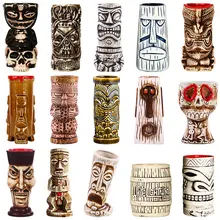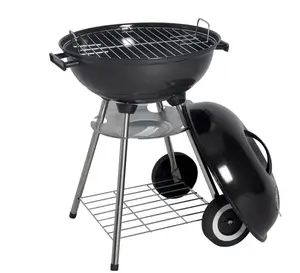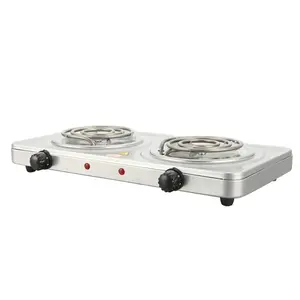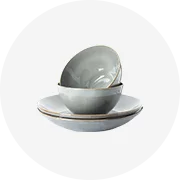The cast iron bbq grills are a quintessential element for culinary professionals and enthusiasts who demand robustness and performance in their outdoor cooking equipment. These grills are celebrated for their exceptional heat retention and versatility, making them an indispensable tool for a myriad of cooking techniques.
Types of Cast Iron BBQ Grills
The market offers a plethora of cast iron bbq grills, each designed to cater to specific culinary needs and preferences. For instance, the cast iron griddle for outdoor grill is perfect for those who enjoy flat surface cooking, ideal for items like burgers and pancakes, while the cast iron grill grate is sought after by those looking to achieve the classic grill marks on steaks and vegetables. Specialty types such as the lodge cast iron barbecue grill are revered by purists for their traditional design and superior craftsmanship. In contrast, modern variations may include features like side burners or infrared cooking technology, expanding their functionality beyond traditional grilling.
Structure of Cast Iron BBQ Grills
The anatomy of a cast iron barbecue grill is a marvel of design, aimed at providing a seamless cooking experience. The grill typically consists of a firebox, which houses the heat source, and a hinged lid that helps in controlling the cooking environment. The cast iron grill rack sits above the heat source, and its thickness can vary, which influences heat transfer and retention. Many grills also feature a drip tray to collect excess fat and reduce flare-ups, and some may have an ash catcher for ease of cleaning when using charcoal.
Materials in Cast Iron BBQ Grills
The choice of materials in cast iron bbq grills is deliberate, aimed at enhancing the grill's longevity and performance. Cast iron is the material of choice for the grates due to its ability to maintain high temperatures and impart a distinct flavor to the food. The body of the grill may be constructed from a range of metals, with stainless steel being a popular choice for its corrosion resistance. Accents of wood or heat-resistant plastics are often added for handles and knobs, providing both functionality and aesthetic appeal.
Business Usages and Applications
In the commercial realm, cast iron bbq grills are a mainstay in establishments that pride themselves on their grilled cuisine. These grills are not just limited to steakhouses and burger joints; they are also prevalent in hotels, resorts, and even food trucks that serve grilled delicacies. The robustness of cast iron grills makes them ideal for high-volume cooking, and their ability to maintain consistent heat is crucial for kitchens that cannot afford uneven cooking during peak service hours.
Functions of Cast Iron BBQ Grills
The primary function of cast iron grill grates is to provide a superior cooking surface that evenly distributes heat. This is essential for cooking meats to perfection, achieving the right crust and internal temperature without hot spots. Beyond grilling, these versatile tools can also be used for smoking meats, baking pizza on the grill, or even frying with the addition of a cast iron griddle for gas grill. The multifunctionality of these grills makes them a valuable asset for any culinary setup.
Features of Cast Iron BBQ Grills
Distinctive features of cast iron barbecue grill grates include their rugged construction and the non-stick surface that develops with proper seasoning over time. Advanced models may incorporate features such as integrated lighting systems for nighttime grilling, precision temperature controls, and even Bluetooth connectivity for monitoring cooking progress from a distance. These innovative features are designed to enhance the user experience and provide convenience without compromising the integrity of the cooking process.
Benefits of Cast Iron BBQ Grills
The use of a cast iron bbq grill offers numerous benefits. The material's excellent heat retention reduces fuel consumption and ensures that food cooks evenly and quickly. The longevity of cast iron means that these grills can last for decades if properly maintained, representing a significant cost saving over time. For businesses, this translates to a reliable piece of equipment that can handle continuous use, day in and day out, becoming an integral part of the kitchen's arsenal.
How to Use Cast Iron BBQ Grills
Effective use of a cast iron bbq grill involves more than just firing up the grill and placing food on the grate. It starts with understanding the importance of preheating the grill to the right temperature for different types of food. Managing the fire, whether it's a bed of glowing coals or adjusting the flame on a gas grill, is crucial for optimal cooking conditions. Utilizing the lid to control airflow and smoke adds another layer of flavor and allows for techniques such as indirect grilling, where food cooks in the ambient heat, perfect for larger cuts of meat.
How to Choose the Right Cast Iron BBQ Grill
Selecting the appropriate cast iron grill rack involves assessing your specific needs. For commercial settings, consider grills that offer large cooking surfaces, robust construction for longevity, and features that cater to a professional kitchen's pace, such as quick heat recovery. For home use, factors such as size, ease of maintenance, and versatility should be considered. The right grill should align with the user's cooking style, space constraints, and the types of food most commonly grilled.
How to Clean and Maintain Cast Iron BBQ Grills
Cleaning and maintaining a cast iron grill grate is essential for ensuring its longevity and performance. After grilling, while the grill is still warm, use a grill brush to remove food particles. Avoid using soap, which can strip the seasoning from the cast iron. To maintain the grill, apply a thin layer of cooking oil to the grates after each use to protect them from moisture and rust. Covering the grill when not in use, especially in harsh weather conditions, will also help to preserve its condition.
How to Install Cast Iron BBQ Grills
Installing a cast iron barbecue grill typically requires some assembly. It's important to follow the manufacturer's instructions carefully to ensure all components are correctly installed. For gas grills, it's crucial to check all connections for leaks using soapy water before igniting the grill. Ensuring the grill is level and stable is also important for safety and cooking performance.
Target Audience for Cast Iron BBQ Grills
The target audience for cast iron bbq grills is diverse, encompassing both the commercial sector and home users. Commercial buyers, such as restaurants and catering services, value the grills for their durability and the authentic grilled flavor they impart to food. Home users, particularly those who are passionate about grilling and outdoor cooking, appreciate the quality and the traditional cooking experience that cast iron provides.







































 浙公网安备 33010002000092号
浙公网安备 33010002000092号 浙B2-20120091-4
浙B2-20120091-4